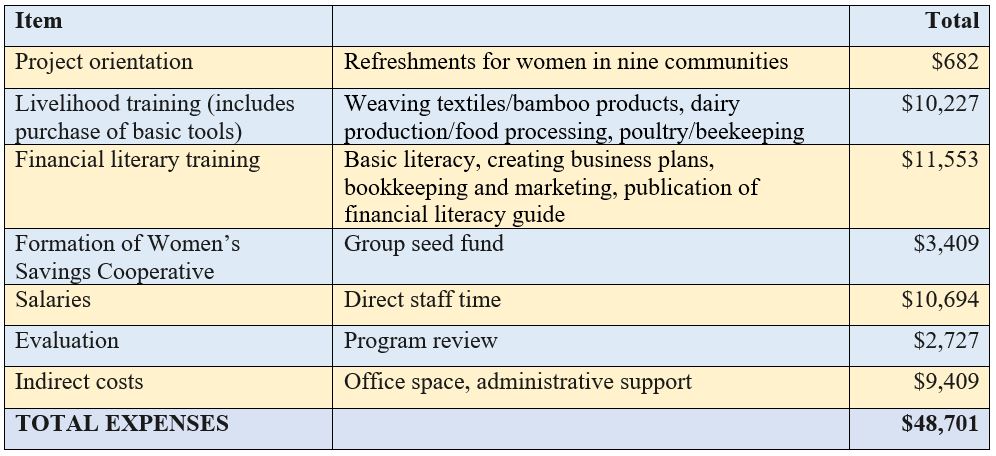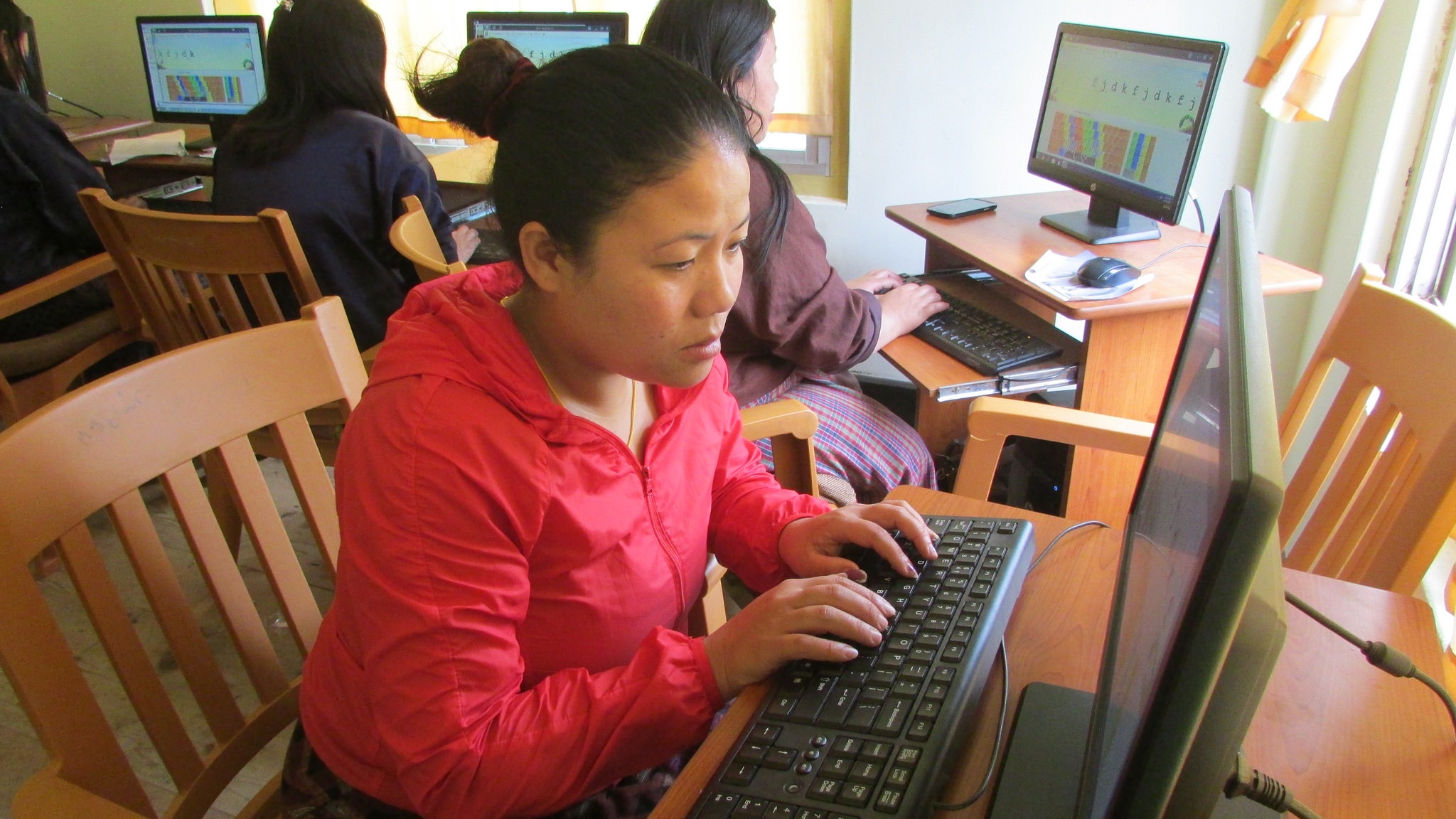
Mission
The mission of READ Global is to empower rural communities to alleviate poverty.
Life Challenges of the Women Served
In Bhutan, nearly two-thirds of the population lives in remote areas isolated by rugged terrain and with few educational or economic opportunities. The most disadvantaged are rural women. They earn the lowest incomes, living on around $1 per day. Lack of access to electricity and internal road networks isolate women from markets, which limits their livelihood opportunities. Many lack the knowledge to run small businesses, financial literacy is low, and there is a limited culture of saving money. Additionally, the country’s history of excluding women and girls from education and positions of authority has created a landscape where women rarely hold public leadership roles.
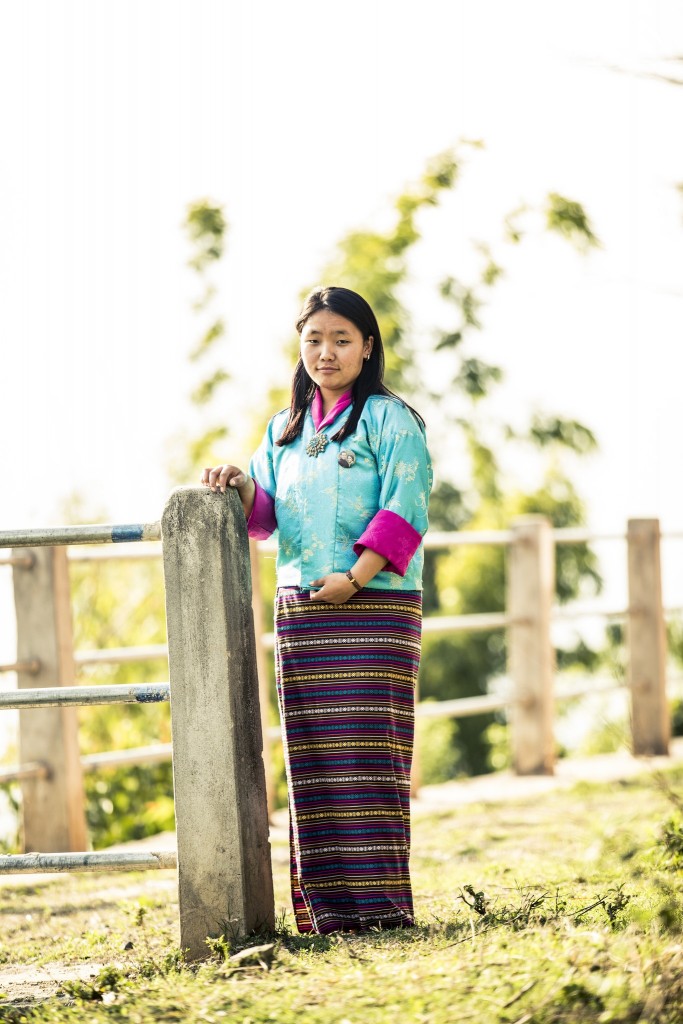 Many rural Bhutanese women are illiterate, do not have formal employment outside the home and have no professional or vocational skills. Once their children and husbands leave for work, they are left with housework and little opportunity to learn and grow as individuals. Already disempowered, the prevailing situation further serves to lower their self-esteem and confidence. In turn, this contributes to a general lack of public trust in women and diminishes their chances of participating in the public space, including assuming leadership roles. The Parliament of Bhutan is comprised of 72 members, and only eight are women. During the 2016 local government elections, only 12 percent of elected leaders at the grass roots level were women.
Many rural Bhutanese women are illiterate, do not have formal employment outside the home and have no professional or vocational skills. Once their children and husbands leave for work, they are left with housework and little opportunity to learn and grow as individuals. Already disempowered, the prevailing situation further serves to lower their self-esteem and confidence. In turn, this contributes to a general lack of public trust in women and diminishes their chances of participating in the public space, including assuming leadership roles. The Parliament of Bhutan is comprised of 72 members, and only eight are women. During the 2016 local government elections, only 12 percent of elected leaders at the grass roots level were women.
Although women comprise half of Bhutan’s population, their lack of public participation economically or through leadership roles has far-reaching social implications. When rural women lack access to livelihood skills, they miss out on opportunities to earn income, provide for themselves and their families, and become more respected in their communities. While the World Bank reports that Bhutan’s poverty rate fell to 12 percent as of 2012, it also notes that for every two families that escaped poverty, one fell into poverty. As rural women in Bhutan are likely to take primary responsibility for childrearing, they must make important and daily decisions about the allocation of household resources, and have a major role in the transmission of financial habits and skills to their children. This is impossible if they have not acquired adequate financial skills themselves.
A lack of education and a slow pace of modernization has led to the plight of rural Bhutanese women. Until the 1950s, there were no public schools or hospitals in Bhutan, and no paper currency, roads or electricity until several years after that. With modernization still unfolding – the country opened its doors in 1961 and only welcomed television and the Internet in 1999 – rural women in Bhutan still lack access to information, training and literacy programs that can drive education and economic empowerment. Since few people had the opportunity to gain an education, adult illiteracy remains high, particularly among women. Many never attended school, and others dropped out of school very early, never completing primary or lower secondary school. Many rural communities lack non-school based educational resources, and are plagued by literacy rates that are 33 percent lower than those in urban areas. Additionally, most of the trainings conducted by government agencies are ill-suited to rural women’s needs 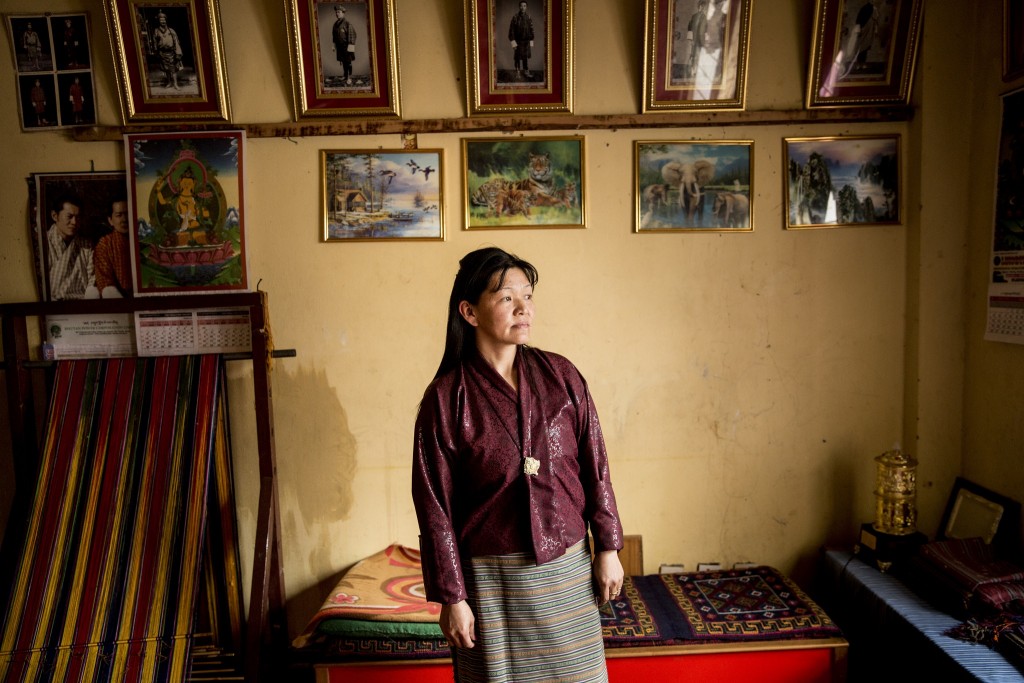 and are usually conducted in urban centers. Even among younger generations, the concept of entrepreneurship remains novel. And since Bhutan held its first national elections only in 2008, the country also has less experience than its neighbors in promoting women’s civic engagement
and are usually conducted in urban centers. Even among younger generations, the concept of entrepreneurship remains novel. And since Bhutan held its first national elections only in 2008, the country also has less experience than its neighbors in promoting women’s civic engagement
Amid rapid modernization, long-standing socio-cultural perceptions still view women as less confident, less capable and having lower status than men. With few training opportunities specifically catered to rural women’s needs and physically accessible to them, more than half the country’s population, women with tremendous potential to contribute to the country’s development, will remain neglected, underestimated, and unutilized.
The Project
The project’s goal is to empower 300 rural women in nine communities in Bhutan by enhancing their financial literacy, entrepreneurship and livelihood skills to improve their and their families’ economic opportunities.
To achieve this, READ provides specialized training at their proprietary READ Centers, which also serve as libraries and the platform for social and economic transformation. The library is the core of any READ Center, a safe and equalizing place where women can gather with other women to access non-formal education. Three-quarters of women report that they enjoy increased mobility because of the centers, as they are now able to routinely leave their homes without needing to seek their families’ and/or husbands’ permission. Thanks to civic participation programs offered at READ Centers, more Bhutanese women are developing the confidence to assume leadership roles in their families and communities. Today, READ Centers provide free access to information, education, technology, and a variety of programs and services, which empower individuals to work toward a brighter future, with an emphasis on outreach to women and girls and people from marginalized castes.
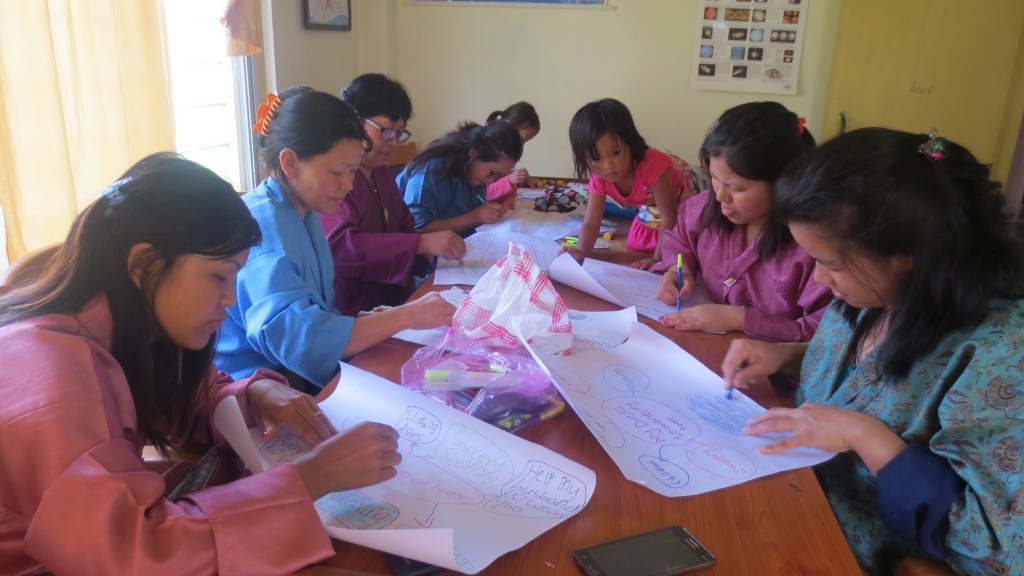 The project aims to have women become financially literate, gain income-generating skills and join savings groups at READ Centers that support the establishment or expansion of microenterprises. Participants learn that there are opportunities to earn, and become equipped with the tools and knowledge to start and grow small income-generating businesses. Such success stories spark interest in others in the larger community to take up similar paths to success. As more women join the cooperatives, they become self-sustaining. Upon completion, women who demonstrate strong skills and aptitude in the areas of intervention will be chosen as experts for future projects; hence empowering them economically and socially.
The project aims to have women become financially literate, gain income-generating skills and join savings groups at READ Centers that support the establishment or expansion of microenterprises. Participants learn that there are opportunities to earn, and become equipped with the tools and knowledge to start and grow small income-generating businesses. Such success stories spark interest in others in the larger community to take up similar paths to success. As more women join the cooperatives, they become self-sustaining. Upon completion, women who demonstrate strong skills and aptitude in the areas of intervention will be chosen as experts for future projects; hence empowering them economically and socially.
Training unfolds in a very specific order. First, the women learn to read and write. Next, they gain some awareness of their rights and health needs, and learn public speaking and decision-making skills that raises their confidence level. At this point, participants learn how to generate income by gaining valuable skills such as agriculture and sewing. They also have the opportunity to join microcredit and savings cooperatives. The centers also provide access to computers and the Internet, which bridges the digital divide that exists in rural villages, as well as book, games, art, and tutoring for children.
Rural Bhutanese women will be taken through each step of the process, as follows: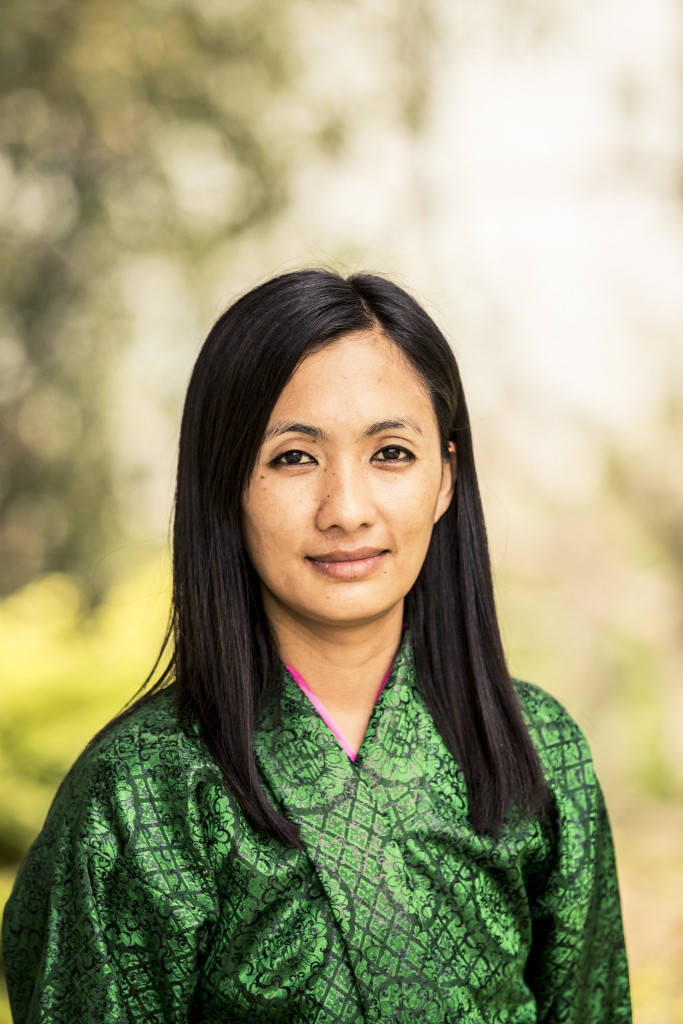
- Introduction and READ Bhutan organizes meetings to disseminate the project’s objectives and future benefits among potential participants. During the orientation phase, READ Bhutan identifies and selects project participants.
- Baseline surveys. These are conducted to measure existing literacy and financial skills, as well as the confidence levels of the women.
- Literacy and leadership This is the cornerstone training programs at READ Centers, which are safe and equalizing spaces where women can gather with other women. In these safe spaces, women learn to read and write as a first step towards financial literacy. READ Centers then provide Gender Awareness and Reproductive Health Training to empower women with knowledge of their rights and needs, and Leadership Training to develop their decision-making capabilities.
- Livelihood skills In partnership with government agencies and local training institutes, READ Bhutan provides training for participants in weaving textiles/bamboo products, dairy production/food processing, and poultry/beekeeping. These trainings are selected based on each community’s environment, market opportunities, needs, and interests. Local women and READ Center Management Committees help finalize program content to select the most beneficial activities.
- Financial literacy training. In partnership with the Central Bank of Bhutan and local financial institutes, READ Bhutan publishes a financial literacy manual and conducts basic financial literacy training covering topics such as creating business plans, bookkeeping, marketing, and financial The training is developed and offered by READ Centers and its partners to enable rural women to better manage their finances and access capital. READ provides advanced financial literacy and micro-entrepreneurship training to women who have participated in livelihood training and who want to establish an enterprise around these new skills.
- Savings READ helps women form Savings Cooperatives in each of the nine Centers to encourage saving and to offer loans to start home-based businesses or upgrade existing businesses. Each 20-member, all-women group elects a leader and makes decisions together on topics including minimum deposits and benefits. READ Bhutan also endeavors to link savings groups with existing cooperatives in the national/local level.
The program is administered chronologically over a one-year period.
Direct Impact: 300 women Indirect Impact: 1,500 family members
Sustainable Development Goals
![]()
![]()
![]()
Questions for Discussion
- Why is there a particular order to the training sessions?
- How might the family dynamics at home change for participants?
- How do you think the program could spur an interest in education?
How the Grant Will be Used
Dining for Women’s grant of $48,701 will cover training, salaries, cooperatives, program evaluation and indirect expenses for nine rural communities for one year.
Why We Love This Project/Organization
We love the holistic center and grassroots approach (including training and access to computers and the internet) that focuses on local needs, as well as the components of vocational skills, entrepreneurship and the focus on food processing and bees. The project pairs centers with for-profit enterprises to help sustain the centers and provide economic opportunities.
Evidence of Success
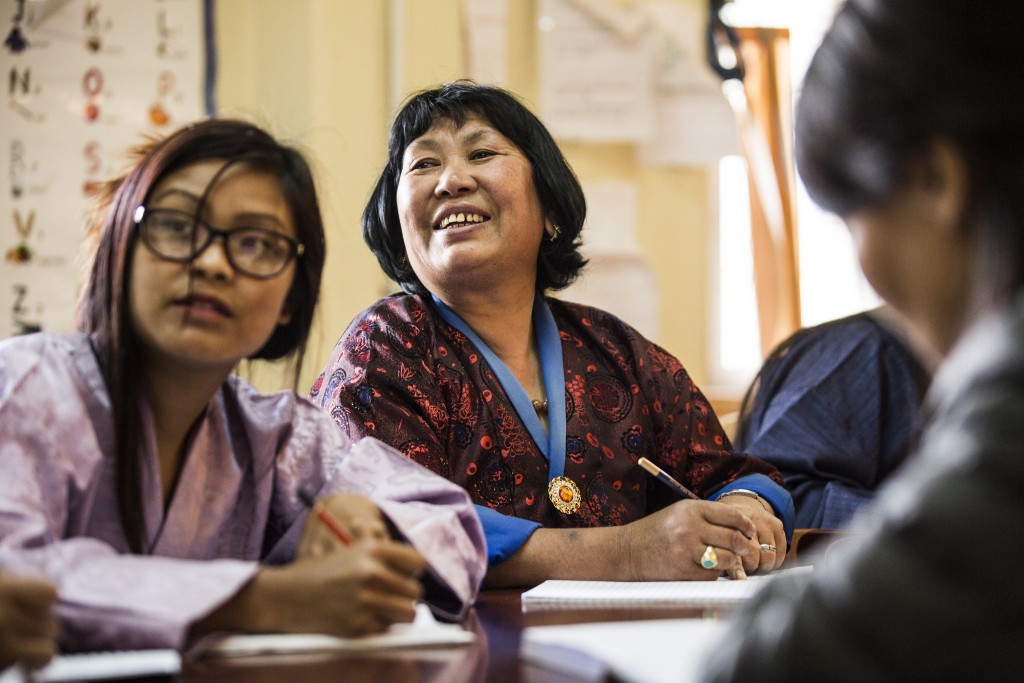 Since 1991, the READ model has evolved from a rural library to a thriving network of 99 READ Centers serving 2.3 million people in Bhutan, India, and Nepal. These for-profit enterprises help fund the continued work and serve as a local economic engine that provides jobs and serves as a model for good business practices in rural areas. No READ Center has ever closed.
Since 1991, the READ model has evolved from a rural library to a thriving network of 99 READ Centers serving 2.3 million people in Bhutan, India, and Nepal. These for-profit enterprises help fund the continued work and serve as a local economic engine that provides jobs and serves as a model for good business practices in rural areas. No READ Center has ever closed.
A large majority of villagers surveyed – 99 percent in Bhutan, 75 percent in India, and 67 percent in Nepal – report that without their local READ Center, they would not have access to the educational resources and opportunities available there. Women who accessed READ trainings gained confidence and life skills: two-thirds of women in India and Nepal reported having more decision-making power in their families on matters such as health care, their children’s education, spending, and family planning. Most women in all three countries report increased self- esteem and self-confidence as a result of participating in activities at their local READ Center. Livelihood trainings boost participants’ income and savings: three-quarters of participants surveyed in India and 64 percent in Nepal reported that they could better meet their families’ economic needs because of livelihood skills obtained at the READ Center. In Nepal, 63 percent of women increased their income or savings after participating in savings cooperatives at READ Centers and 20 percent have started their own businesses. Based on the impact of its long-running women empowerment and livelihood programs in India and Nepal, READ aims to replicate the same programs in Bhutan to achieve similar results for more women.
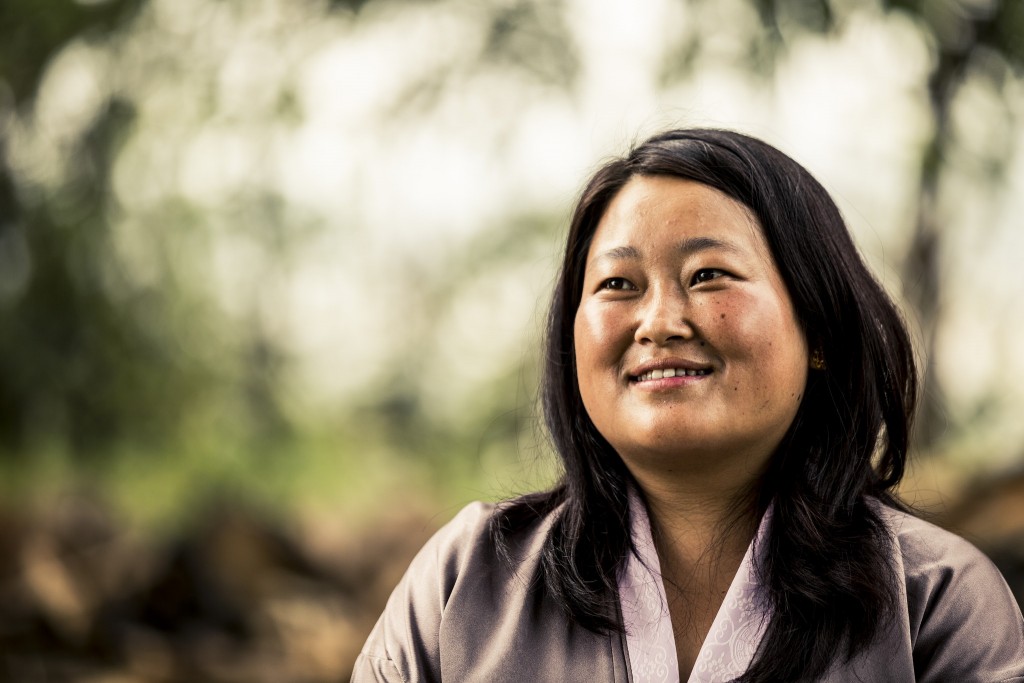 READ’s approach remains unique. No other organizations offer a holistic suite of programs meeting the various needs of both children and adults in one place that is also considered a “safe space” for women. Moreover, READ remains the only organization working to establish libraries in Bhutan; there was only one library before READ was launched.
READ’s approach remains unique. No other organizations offer a holistic suite of programs meeting the various needs of both children and adults in one place that is also considered a “safe space” for women. Moreover, READ remains the only organization working to establish libraries in Bhutan; there was only one library before READ was launched.
READ Global has won the Barry & Marie Lipman Family Prize, the Bill & Melinda Gates Foundation’s Access to Learning Award and was recognized in 2010 by President Bill Clinton at the Clinton Global Initiative (CGI) Annual Gathering in New York City for its commitment to empower more than 16,000 women through a four-year Commitment to Action.
Voices of the Girls
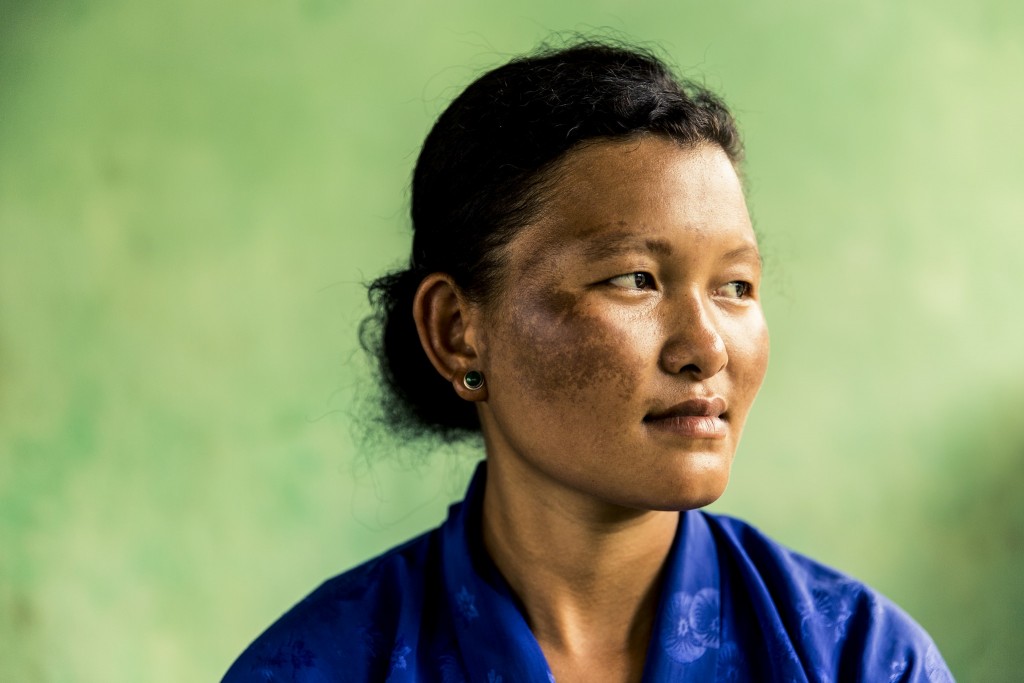 The English literacy classes at the READ Center have helped me become more independent and confident. When I travel to places or visit hospitals, I can read the signboards and understand directions.”
The English literacy classes at the READ Center have helped me become more independent and confident. When I travel to places or visit hospitals, I can read the signboards and understand directions.”
– Dorji Wangmo (53), Changjiji
I am illiterate and there aren’t many places here that provide opportunities to people like me. The only avenue to earn livelihood for me is to work in the farms. READ Bhutan provided a basic sewing program at the Center and so far that has been the best opportunity for me to earn additional income.”
– Pema Tharzom (25), Chuzagang
Before the READ Center, I never had the opportunity to interact with people outside my community and there was no place where I could learn new skill or access information. I was shy, never travelled alone and I preferred to stay home when not working in the fields. But now, I am determined to seize every opportunity to better myself.
– Tshechay Zangmo, 25, participated in the recent government election
Having a community radio in my village has benefitted me a lot because I have always wanted to become a journalist, but I never had the exposure. I actively took part in the capacity building program conducted by our READ Center on identifying stories, reporting, interviewing and producing radio programs. I think I can become a journalist someday.
– Phurba Wangmo (18), Khotakpa
Before the READ Center, a lot of youth in the community would form groups and cause troubles. Now the READ Center has become a hang-out place for many youth and children. They would spend their weekends reading books, learning computers and children come to play. Youth troubles have decreased drastically.
– Karma Lhamo, Center Coordinator, Chuzagang READ Center
About the Organization
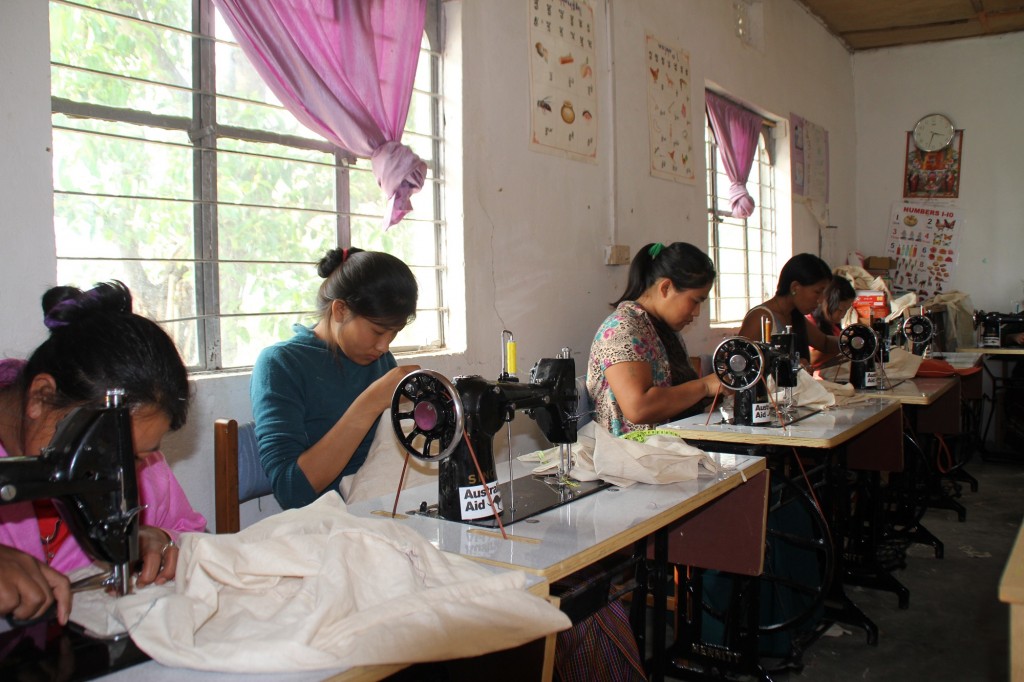 Dr. Antonia “Toni” Neubauer, a former language teacher and education researcher, has traveled throughout Asia for decades with her adventure travel company, Myths and Mountains. READ Global was inspired by a simple wish from a Nepalese trekking guide to Toni: to have a library for his rural village. Embracing the opportunity to give back to a part of the world that had filled her with so much joy, Toni harnessed her resources and founded Rural Education and Development (READ) Global in 1991 in Nepal. Since its inception, READ Global has established self-sustaining community-owned and managed READ Centers (community libraries) that serve as platforms for a variety of programming and services. READ began working in Bhutan in 2008 with the goal of transforming rural communities by creating access to information and resources, and building a culture of reading.
Dr. Antonia “Toni” Neubauer, a former language teacher and education researcher, has traveled throughout Asia for decades with her adventure travel company, Myths and Mountains. READ Global was inspired by a simple wish from a Nepalese trekking guide to Toni: to have a library for his rural village. Embracing the opportunity to give back to a part of the world that had filled her with so much joy, Toni harnessed her resources and founded Rural Education and Development (READ) Global in 1991 in Nepal. Since its inception, READ Global has established self-sustaining community-owned and managed READ Centers (community libraries) that serve as platforms for a variety of programming and services. READ began working in Bhutan in 2008 with the goal of transforming rural communities by creating access to information and resources, and building a culture of reading.
Collaboration with both communities and other organizations is central to the success of the READ model. READ is an ideal partner for other organizations and local government agencies, as it creates a physical structure in the community and mobilizes community members. This makes it is easier for other organizations to deliver their programs and services. READ regularly connects with local partners to offer trainings in education, economic empowerment, technology, and women’s empowerment. These partnerships also enable READ to increase its reach, ensure the sustainability of its Centers, and meet the unique needs of rural villagers, particularly women, rather than applying a “one size fits all” solution. For example, READ Bhutan recently partnered with the Bhutan Cancer Society and the country’s Ministry of Health to conduct a health camp at the Yangthang READ Center to raise awareness of non-communicable diseases, breast cancer and other women’s- health related issues. READ also partnered with the Ministry of Agriculture in Bhutan to deliver post-harvest training to women in Mendhagang, Chuzegang and Khotakpa READ Centers.
READ Centers are community-initiated and managed. The training programs are implemented after consultation with community members. The women trained through this program eventually lead the programs and train other women in their communities. In all READ Centers, women make up at least one-third of the Center’s managing committee. There are also women’s sub-committees that influence the Centers’ programs for other women and girls. In addition, following the formation of savings groups, women elect their own leaders and make decisions together on topics such as minimum deposits and benefits. READ’s approach targets and empowers women specifically to become active players in shaping their own futures. READ Centers are safe and equalizing spaces where women and girls are routinely allowed to visit.
Where They Work
READ Global’s 99 READ Centers serve rural communities in nine dzongkhags in Bhutan, eight states in India, and 41 districts in Nepal. Bhutan is a small, landlocked country in Southeast Asia sandwiched between China and India. It is about half the size of the state of Indiana, and the population is approximately 750,000. The climate varies between tropical in the southern plains, cool winters and hot summers in the central valleys, and severe winters and cool summers in the Himalayas. Frequent landslides occur during the rainy season and violent storms strike the Himalayas, which led to the source of the country’s name, which translates to “Land of the Thunder Dragon.”
The primary ethnic groups are the Ngalop (also known as Bhote) 50 percent, ethnic Nepalese 35 percent, and indigenous or migrant tribes that make up 15 percent of the population. Three out of four are Buddhists and 25 percent are Hindu. Two-thirds use contraception, which results in a birth rate of approximately two children per woman. Although water and sanitation has been improved for most of the country, the risk of major infectious diseases remains high, including bacterial and protozoal diarrhea, hepatitis A, and typhoid fever. The official language is Dzonghka, but only 24 percent speak it. Scharchhopka is spoken by 28 percent and Lhotshamkha is spoken by 22 percent, with the remaining 26 percent speaking other foreign languages.
Although it is known for its beauty and “Gross National Happiness,” most of the people live in remote areas where the terrain is challenging and there are few educational or economic opportunities. Bhutan was closed-off from the rest of the world until the 1960s. It has one of the lowest literacy rates in Asia, and before READ established the first center there, there was only one public library in the entire country. READ Global is one of the only international non-profit organizations operating in Bhutan.
A closer look at the history of Bhutan
Bhutan’s history is riddled in folklore, mythology, saints, spirits, ghosts, yetis, medicine men, and lamas reincarnated in three different bodies. School children learn that demons terrorizing villages were thwarted through magic and converted to Buddhism. Some adults believe ghosts destroyed temples and angels rebuilt them. Thus, the history of Bhutan is as grounded in storytelling as it is in historical facts. As such, to understand and appreciate Bhutanese history, it helps to keep an open mind and vivid imagination.
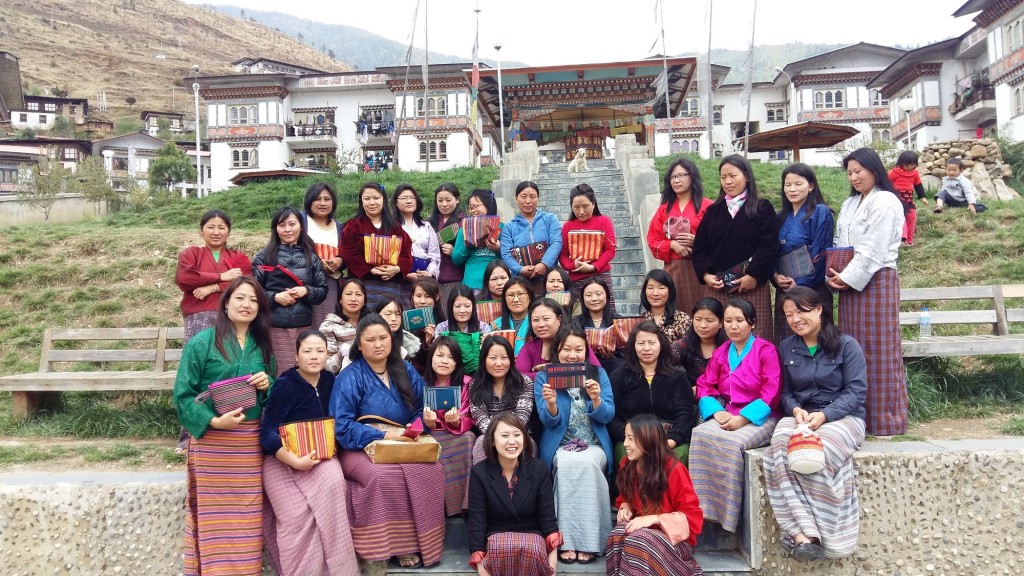 Bhutan’s medieval and modern history also reads like an adventure movie, complete with warlords, feuds, fortresses and castles. The common thread that runs through hundreds of years is that Bhutan remained a remote, isolated kingdom. Fast forward to 1865, the year Britain won the Duar War and an agreement ensued wherein Bhutan was to receive an annual subsidy in exchange for ceding land to British India. Ugyen Wangchuck was the ruler of Bhutan at the time, and based on his enhanced relations with the British he was named king in 1907. Three years later, another treaty was signed in which the British would handle Bhutan’s foreign affairs, but not their internal affairs. A similar arrangement was negotiated with India after 1947, followed by the return of a small piece of the territory annexed by the British years prior. At this point, India’s responsibilities to Bhutan in defense and foreign relations were more formalized, thus entering a succession of monarchs beginning in the 1950s. Even as late as the 1960s, Bhutan had no national currency, telephones schools, hospitals or postal service. There were zero tourists at this point.
Bhutan’s medieval and modern history also reads like an adventure movie, complete with warlords, feuds, fortresses and castles. The common thread that runs through hundreds of years is that Bhutan remained a remote, isolated kingdom. Fast forward to 1865, the year Britain won the Duar War and an agreement ensued wherein Bhutan was to receive an annual subsidy in exchange for ceding land to British India. Ugyen Wangchuck was the ruler of Bhutan at the time, and based on his enhanced relations with the British he was named king in 1907. Three years later, another treaty was signed in which the British would handle Bhutan’s foreign affairs, but not their internal affairs. A similar arrangement was negotiated with India after 1947, followed by the return of a small piece of the territory annexed by the British years prior. At this point, India’s responsibilities to Bhutan in defense and foreign relations were more formalized, thus entering a succession of monarchs beginning in the 1950s. Even as late as the 1960s, Bhutan had no national currency, telephones schools, hospitals or postal service. There were zero tourists at this point.
Bhutan joined the UN in 1971, yet its policy of isolationism continued. It wasn’t until the third king rose to power that Bhutan began to shed its medieval practice of seclusion. In 2005, King Jigme Singye Wangchuck presented a draft constitution that introduced reforms. In 2006, the king abdicated the throne so that his son, Jigme Khesar Namgyel Wangchuck, could take over. In 2007, India and Bhutan once again renegotiated their treaty and took a step closer to full independence. However, even today, the capital city, Thimphu, continues to work closely with New Delhi. The king ratified the first constitution in 2008 and there was a peaceful turnover of power following the election of 2013. Today, there is an airport, roads and a national healthcare system. Despite these modernizations, Bhutan has worked hard to preserve its national identity.
Source Materials
https://www.cia.gov/library/publications/the-world-factbook/geos/bt.html

